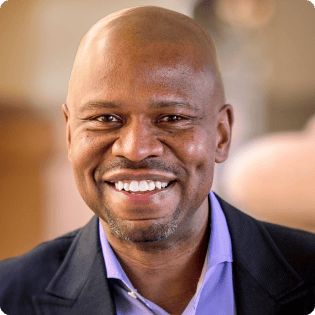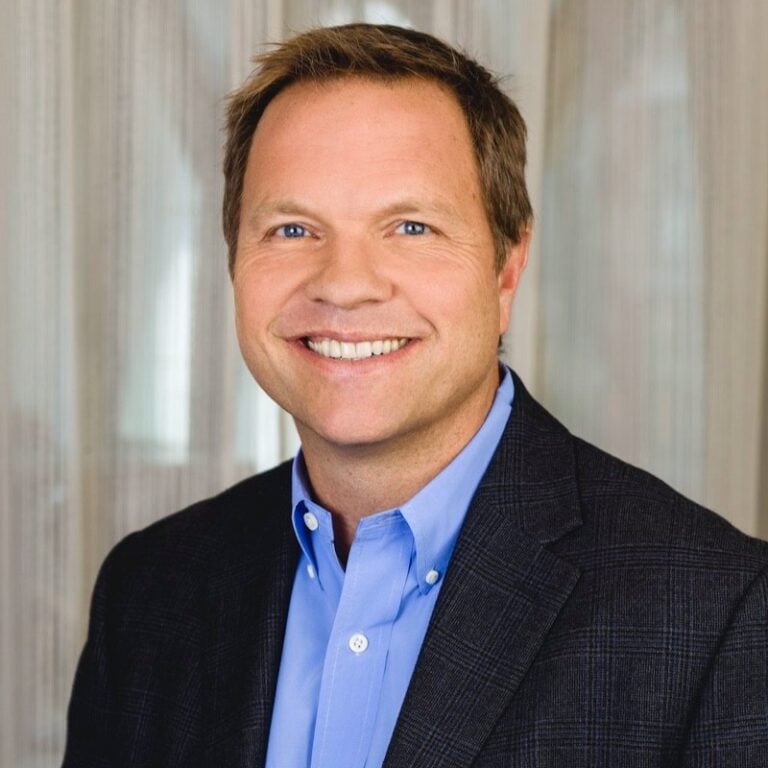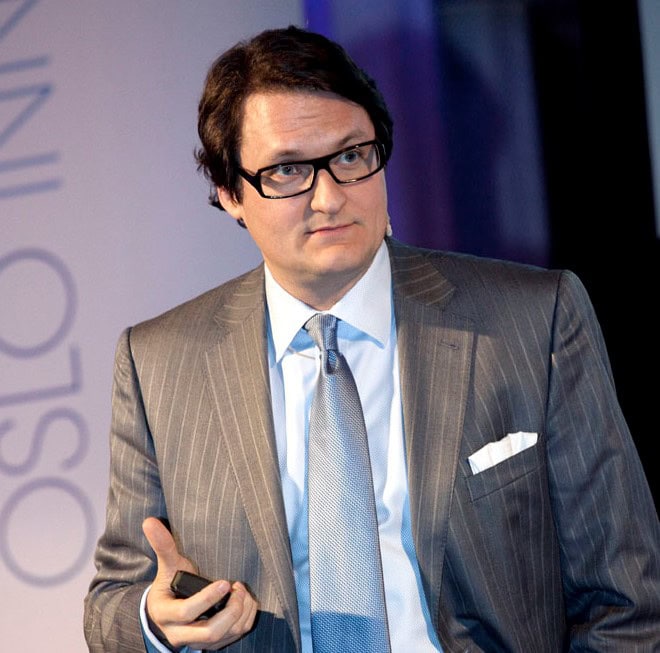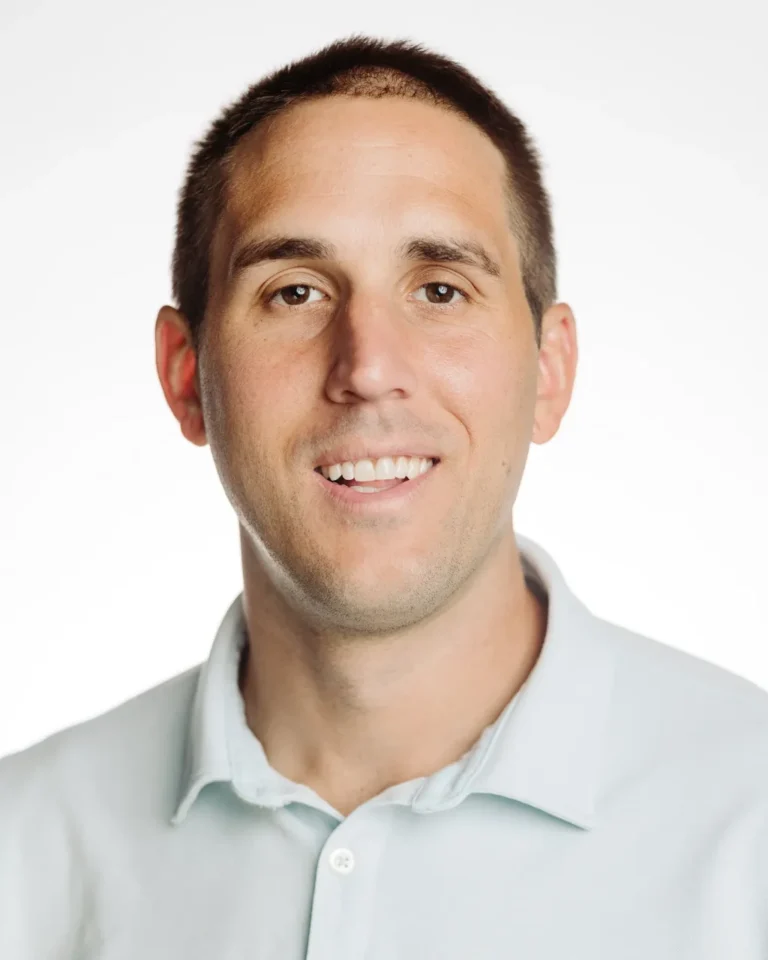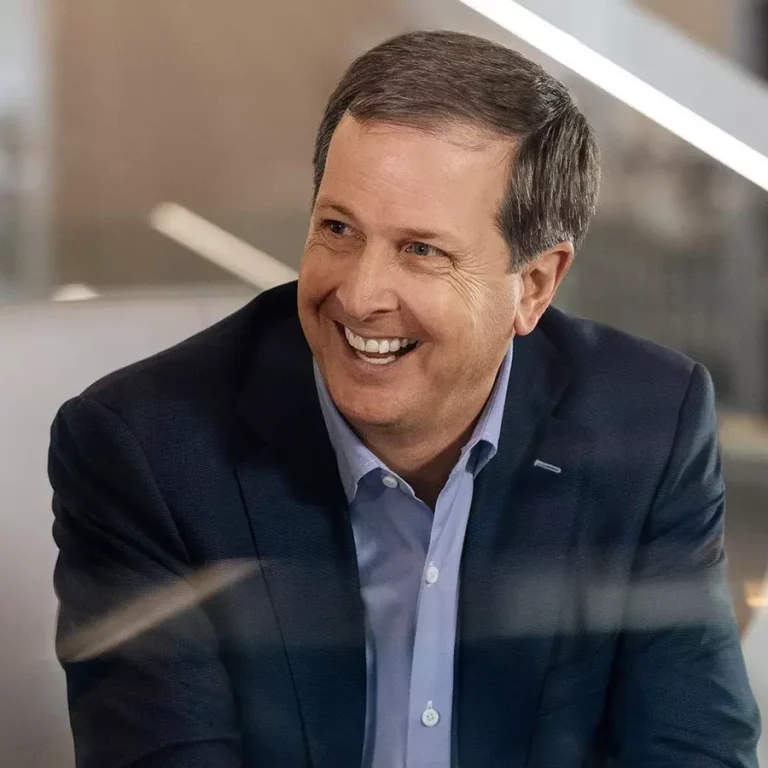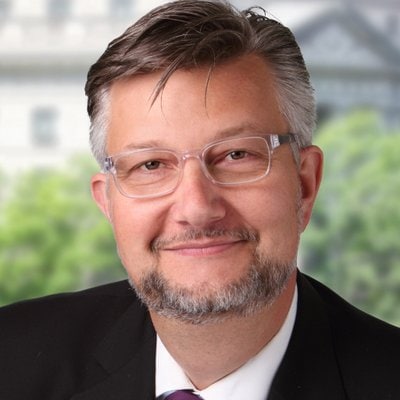
February 21, 2023
Andreas Widmer, Director, Center for Principled Entrepreneurship
Reboot Lessons From The Pope and The Entrepreneur – Andreas Widmer
How would you like the pope to be your mentor? Imagine applying to be in the Swiss Guard and landing a gig as Pope John Paul II’s Bodyguard. That’s what happened to Andreas Widmer when he was a teenager. Today, as the founder and director of the Art & Carlyse Ciocca Center for Principled Entrepreneurship, at The Catholic University of America’s Busch School of Business, he aims to promote a new kind of entrepreneur—one focusing on Principled Entrepreneurship.
Andreas is an entrepreneur, associate professor, business coach, speaker, multiple book author, including the acclaimed The Pope & the CEO, imparting chock-full of leadership lessons he learned as a Swiss guard protecting the pope. Andreas has recently authored The Art of Principled Entrepreneurship, a book that teaches businesses to be both virtuous and profitable.
Andreas joined me for an extremely engaging and personal episode of The Reboot Chronicles to unpack his book and uncover what principled entrepreneurship means—and how you can tap into it.
The Pope … a Transformative Experience
An application to join the Swiss guard as a teenager got accepted when Andreas Widmer was just 19, leading to a serendipitous moment in his life: becoming a personal bodyguard to Pope John Paul II. As a young boy good at wrestling hustles and sports activity but not too great as a student, a bodyguard seemed like an ideal role. The rigor of the special force unit was rough and being stationed subsequently at the Pope’s apartment, as his bodyguard, was the least Andreas expected. A job that was very much meant to be a background role, turned to something much more than that.
“He didn’t ever want you to say I work for you. He said, No, we work with each other; nobody works for anybody. And so he really got engaged. I started to love working for him. He definitely became a huge role model for me, I have to say. He led me then into practicing my faith, taught me how to be funny, and just taught me the deeper meaning of life and really the self-recognition of who I am. And that helped me over my feelings of inadequacy. I served there for two years until I left. And I left a changed man. It was one of the pivot points, the real inflection points of my life, the time I spent with him.”
Leading Edge Technology Products
From Rome to America, Widmer pursued the dream of his life- his wife Michelle, school in the U.S, leading to technology opportunities in Boston including the famous TCP/IP protocol for Unix systems, and later other high tech boom like speech recognition, out of the one hundred products that he was instrumental in bringing to market. Along the way, events that transpired led him to a point of drawing on the wisdom the Pope had imparted.
“I sort of lost the forest for the trees for a while in my career and then re-found it. And that’s what this book is about. And in there are the main lessons that he tells that I reflect back and get out of the situations, the conversations and, and the writings that he had that I drew from him. And then going forward, in the next companies, I started to apply that.”
The Entrepreneur … Reboot Lessons
A long time friendship with Wine Group Inc. founder Arthur A. Ciocca, the second largest wine company in the United States by sales volume, was provided his best entrepreneurial mentoring lessons. Teaching Entrepreneurship at the Busch School of Business at the Catholic University America, he wanted to reflect on the orchestration and creation of the largest wine brand over the past four decades. Advancing people-centered values while creating profits became the focus of Art of Principled Entrepreneurship, with five pillars that form the foundation of an entrepreneurial mindset, thereby creating value and achieving excellence.
“There’s something that crept into the American psyche over the last 20 or 30 years and that the American dream is not a good thing & the free market somehow is something that hurts people, that the economy is a zero sum game rather than, you know, you have to cut up the pie rather than the economy being a pizza shop like a pizzeria, it’s just one pizza. And so you have to slice it, which is, of course, a zero sum worldview. That creates all kinds of conflicts. It comes out in different ways of identity politics and things like that. Because if there’s only this much, then we can’t all grow at the same time. Then we have to be adversarial with each other.
Art Ciocca at the deep level felt that we actually can live this American dream that every time I create something as an entrepreneur, I actually don’t take value from somebody else.”
Focusing on brick and mortar main street entrepreneurship as the backbone of the American economy and of our prosperity is Andreas Widmer’s way of “promoting it and helping students build these companies.” With technology as an add-on that makes things better, stronger and faster, his goal is “ never lose sight of Main Street because if we move away from Main Street, which we currently are- the entrepreneurship today, we have like almost 60% fewer entrepreneurs today than we had in the seventies.”
Anderas has helped organizations bring over one hundred cutting edge technology products to market, and has over 30 years of experience in international business strategy, economic development, entrepreneurship, and technologies—like AI.
In an AI centric world where technology investment is the focus, a great reminder lies in “How could you invest in people to become even better at what they’re good at already? Because that’s the path to the human genius.” Well said.






